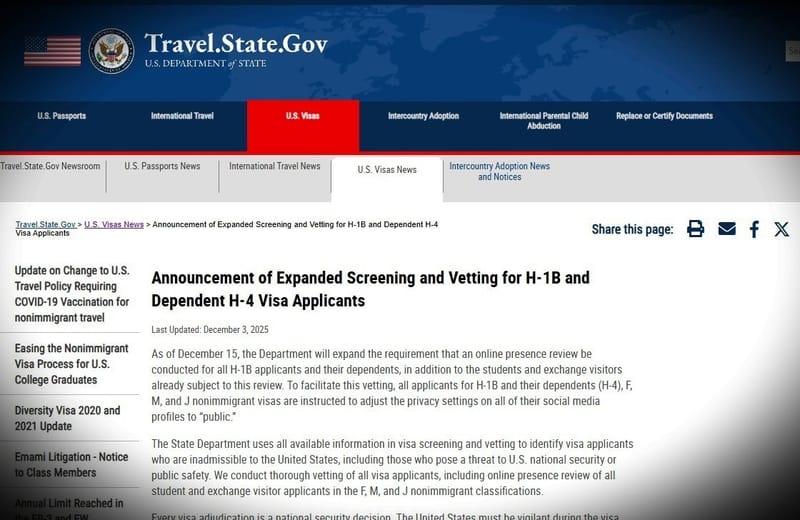H-1B Visa Sponsorship Shifts: Companies React to New $100,000 Fee for Overseas Applicants
This new, albeit narrowly applied, H-1B fee is fundamentally reshaping corporate talent acquisition strategies and could significantly impact the availability of visas for both international candidates and those already in the U.S.
Article Summary
President Trump's administration introduced a $100,000 fee for new H-1B visa applications, specifically targeting workers outside the U.S. without current valid immigration status, as clarified by USCIS. In response, major employers like Cognizant, Intuitive Surgical, Tata Consultancy Services, and Walmart have paused or halted H-1B sponsorship for certain roles, while Nvidia stated it would continue to sponsor. The U.S. Chamber of Commerce has filed a lawsuit challenging the fee, citing its prohibitive cost for businesses.
[ Sentiment: negative | Tone: factual ]
This summary and analysis were generated by TheNewsPublisher's editorial AI. This content is for informational purposes only; it does not constitute legal or immigration advice.
TNP AI: Key Insights
The imposition of a $100,000 fee, even with its narrow application to new overseas H-1B applicants without prior U.S. status, significantly alters the cost structure for employers recruiting internationally. This makes hiring talent already within the U.S. (e.g., F-1 OPT students) a more financially attractive and less risky option, potentially increasing competition for these candidates.
This dramatic increase marks a departure from previous H-1B costs, which historically involved fees ranging from a few thousand dollars, primarily covering application processing, fraud prevention, and public law requirements, making international recruitment substantially less expensive for employers.
For employers, this could accelerate a shift towards prioritizing domestic talent or individuals already on other U.S. visas, potentially altering the landscape of the H-1B lottery by reducing the pool of overseas applicants. The ongoing legal challenge by the Chamber of Commerce highlights the policy's contentious nature, with its outcome poised to further shape corporate talent acquisition strategies and the future accessibility of the H-1B program.





